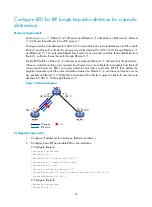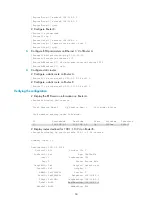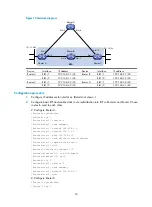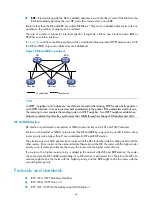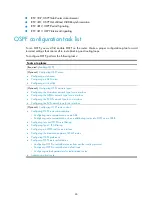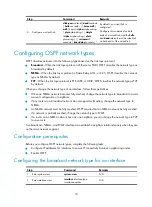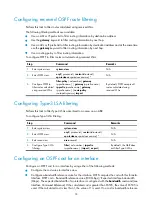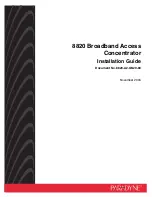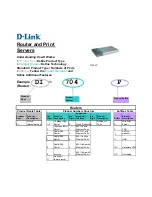
60
Figure 15
Area-based OSPF network partition
Backbone area and virtual links
Each AS has a backbone area that distributes routing information between non-backbone areas. Routing
information between non-backbone areas must be forwarded by the backbone area. OSPF has the
following requirements:
•
All non-backbone areas must maintain connectivity to the backbone area.
•
The backbone area must maintain connectivity within itself.
In practice, these requirements might not be met due to lack of physical links. OSPF virtual links can solve
this issue.
A virtual link is established between two ABRs through a non-backbone area. It must be configured on
both ABRs to take effect. The non-backbone area is called a transit area.
In
, Area 2 has no direct physical link to the backbone Area 0. You can configure a virtual link
between the two ABRs to connect Area 2 to the backbone area.
Figure 16
Virtual link application 1
Virtual links can also be used to provide redundant links. If the backbone area cannot maintain internal
connectivity because of the failure of a physical link, you can configure a virtual link to replace the failed
physical link, as shown in
Area 0
Area 1
Area 2
Area 3
Area 4




